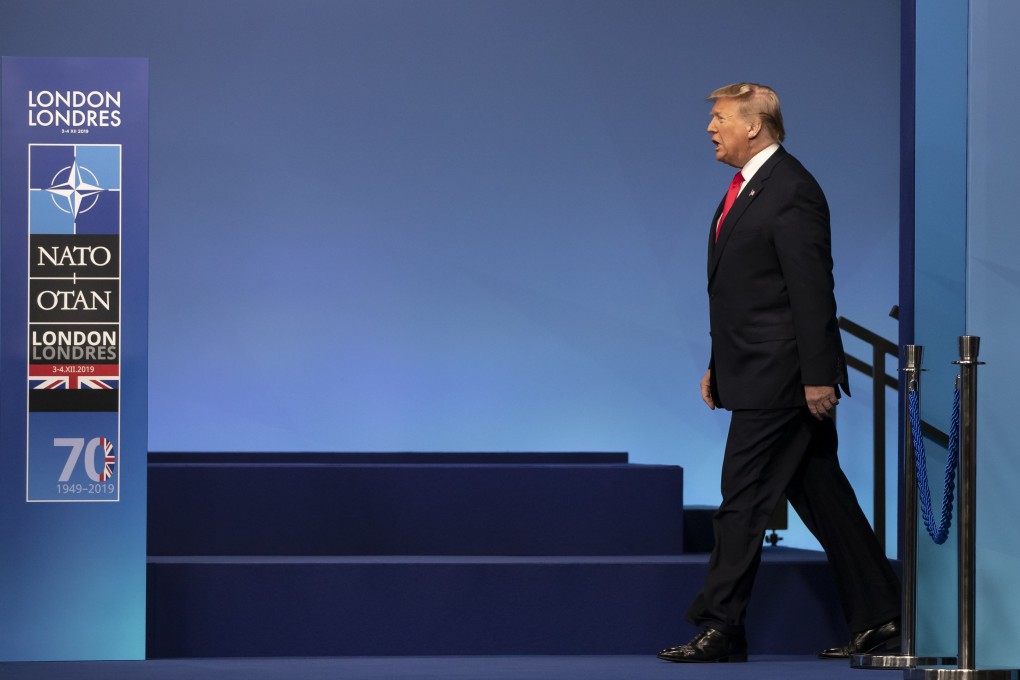Editorial | Nato needs to find its own way free of any manipulation by US
- With the cold war over and the Soviet Union no more, the 29-member self-defence organisation has, under pressure from Donald Trump, wrongly turned its attention to China

The North Atlantic Treaty Organisation needs an adversary to exist. It was established in 1949 to tackle the perceived menace of the Soviet Union, but the cold war is no more and Moscow is barely a threat. With the 29-member organisation struggling to find purpose, it bent to American pressure at its recent anniversary summit and for the first time turned its gaze on China. But Beijing is not where the alliance should be looking; the biggest challenge lies in the unilateralism of President Donald Trump’s administration.
Nato leaders said at the end of their summit near London that they recognised “China’s growing influence and international policies present both opportunities and challenges that we need to address”. Russia and terrorism were also seen as issues on which the alliance needed to stand together, while a decision was made to undergo a fundamental review. The declaration also included a pledge to ensure “the security of our communications, including 5G, recognising the need to rely on secure and resilient systems”.
Although the latter did not specifically mention China, it was evidence of pressure by the United States; it has been lobbying allies to ban equipment from Chinese telecoms giant Huawei on the grounds that it could be used by Beijing for spying, an allegation that has never been proven. The alliance’s security remit is limited to Europe and North America, with the protection of member nations the priority. But Nato Secretary General Jens Stoltenberg said China’s rise and having the world’s second-biggest defence budget was now recognised as presenting security implications and Beijing was also heavily investing in European infrastructure and cyberspace, and expanding its presence in the Arctic and Africa.
The two-day gathering was marked by public and private disagreements and open division on policies. Beijing highlights the disunity; while some European members side with the US and perceive China as a threat, others do not. Few Nato members have bowed to American efforts to ban Huawei.
Trump has his own interests, not those of Nato, at heart. Scoring points against China is part of his strategy for his re-election bid. Preventing China’s economic and technological rise by starving it of trade helps his cause. While the US is Nato’s most powerful member, he has often spoken of his disdain for it; three years ago he referred to the alliance as being “obsolete” and he has expressed a wish to withdraw the US. China’s economic and military strength and influence are growing, but it poses no threat to other nations. Its support of multilateralism is aimed at global growth and development. Nato needs to find a new direction, but it also needs to avoid manipulation by the US.
